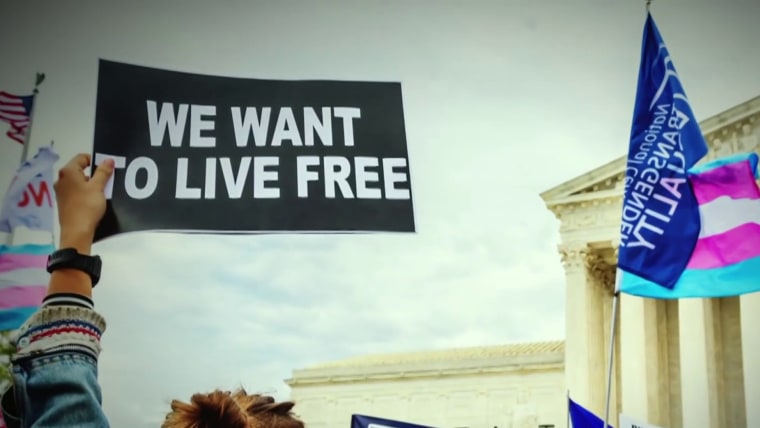This month, corporations are plastering their social media avatars with rainbows, sponsoring Pride parades, and declaring their unwavering commitment to the LGBTQ community. Many of these companies, however, are spending millions supporting the campaigns of anti-gay politicians at the federal and state level.
A Popular Information investigation found that 25 major corporations have spent more than $10 million since 2019 supporting members of Congress with a zero ratingon the latest Congressional scorecard produced by the Human Rights Campaign (HRC), the most prominent LGBTQ rights organization in the United States. These same corporations have also donated hundreds of thousands of dollars to state legislators who have sponsored anti-trans legislation this year.
Despite their extensive support for politicians undermining LGBTQ rights, all these corporations boast a 100% rating on the HRC’s 2020 Corporate Equality Index. Along with workplace policies, the Corporate Equality Index purports to measure corporations’ “public commitment to the LGBTQ community.” But HRC’s methodology excludes political donations, enabling corporations to craft a pro-LGBTQ image while bankrolling politicians that are undermining LGBTQ rights.
CVS Health, for example, received a perfect score from HRC and changed its Twitter avatar to a rainbow heart in June. The company tweeted that it was “proud to join more than 100 companies that have signed HRC’s Business Statement Opposing Anti-LGBTQ State Legislation.”CVS Health @CVSHealth#CVSHealth is proud to join more than 100 companies that have signed @HRC’s Business Statement Opposing Anti-LGBTQ State Legislation. We will continue to use our voice to promote inclusiveness and equal treatment for all. June 8th 20218 Retweets35 Likes
The HRC statement signed by CVS Health and other corporations said the companies were “deeply concerned by the bills being introduced in statehouses across the country that single out LGBTQ individuals — many specifically targeting transgender youth — for exclusion or differential treatment.” On its corporate website, CVS Health says that it is “proud of our long-standing commitment to eliminating discrimination in health care and health care coverage, including our commitment to support the lesbian, gay, bisexual, and transgender communities.”
But, through its corporate PAC, CVS Health has recently supported the sponsors of anti-trans legislation in Texas, North Carolina, and Tennessee, including legislation that would criminalize providing gender-affirming medical care to adults and children.
In Texas, for example, CVS Health backed co-sponsors of SB1646, a bill that would “change the state’s child abuse law” to make it a crime for parents to allow their children to receive gender-affirming medical care. Under the bill, parents that allow their children to receive gender-affirming care could be subject to “the possible removal of the child from their home.” Doctors who provide such care could be “accused of child abuse, which would trigger a license investigation by the Texas Medical Board.”
CVS Health has recently donated to two co-sponsors of the legislation. The company donated $2,000 to Senator Dawn Buckingham (R) in April 2020 and $2,000 to Senator Bryan Hughes (R) in December 2019.
In North Carolina, CVS Health backed Senator Ralph Hise (R), the primary sponsor of S514, which The Advocate called “the most repressive anti-transgender health care bill in the nation.” The legislation would ban anyone under the age of 21 from receiving gender-affirming treatment, including reversible hormone therapy. It also requires government employees, including teachers, to report children who demonstrate “gender nonconformity” to their parents. (Republican Senate leader Phil Berger declined to allow a floor vote on the bill this session.)
Hise’s view on trans issues was not a secret. He was a chief proponent of North Carolina’s infamous anti-trans “bathroom bill” in 2016, saying the legislation was necessary “to protect the citizens of the state of North Carolina.” Nevertheless, CVS Health donated $1000 to Hise in August 2020. The company also donated $750 to one of S514’s co-sponsors, Senator Joyce Krawiec (R), in January 2020.
Since 2019, CVS Health has also donated $259,000 to 54 members of Congress who received a zero rating in HRC’s Congressional scorecard for the 116th Congress. In the House, that meant voting against the Equality Act, which would “provide consistent and explicit non-discrimination protections for LGBTQ people across key areas of life.”
Asked by Popular Information if it would continue to support politicians that sponsor anti-trans legislation or receive a zero on HRC’s Congressional Scorecard — or take any steps to align its political giving with its public statements about LGBTQ rights — CVS did not respond.
A spokesperson for HRC told Popular Information that “we don’t issue public comments about cases like this.” The press release for HRC’s latest Corporate Equality Index says the criteria “are reviewed annually and periodically change, raising the bar to reflect best practices for LGBTQ inclusion and to drive companies to improve upon their commitment to the community.” The criteria for the 2022 index, however, still will not take into account political donations.
Comcast and AT&T have each donated more than $1 million to anti-gay politicians in the last two years
In June, Comcast has been festooning its social media posts with rainbows. A tweet from its Xfinity subsidiary says that “Pride is the love we share. And with Xfinity, it’s Pride all year.”Xfinity @XfinityPride isn’t just a celebration in the month of June. It’s a moment, a promise, a journey, and an awakening. Pride is the love we share. And with Xfinity, it’s Pride all year. June 1st 202146 Retweets238 Likes
Because in-person Pride parades may be limited, Comcast has created “a virtual ‘Pride World,’ where we will feature events, Pride floats, Pride flags, and even a Pronoun Guide for employees.”
On Comcast’s corporate website, Yvette Miley, Senior Vice President of MSNBC and NBC News, says “Some people may think the LGBTQ rights journey is done and the struggle is over, but it isn‘t. Our job is to continuously educate.”
One thing you won’t learn on Comcast’s corporate website is that the company has donated more than $1.1 million to anti-LGBTQ politicians since 2019. This includes more than $30,000 to the sponsors of anti-trans legislation introduced this year in Florida and Texas.
Comcast, through its NBCUniversal corporate PAC, gave $2,000 since 2019 to Florida Representative Randy Fine (R), who co-sponsored legislation that would exclude trans girls from athletics in Florida schools. Fine asserted, without evidence, that trans girls, if they are allowed to compete, will “take scholarships away” from cis girls. (Trans girls have been participating in athletics in Florida schools for eight years and there is no evidence that ever happened.) The bill was recently signed into law by Governor Ron DeSantis (R). Fine has been introducing legislation targeting trans people for many years and is quoted in the media misgendering trans people.
Comcast has also donated $1,095,500 to 149 members of Congress that received a zero in HRC’s latest Congressional Scorecard.
AT&T, the only company that has donated as much as Comcast to anti-LGBTQ politicians in the last two years, has also embraced the rainbow this month. “We can#TURNUPTHELOVE for LGBTQ+ youth together,” AT&T tweeted on June 5.
AT&T was also a signatory of the HRC letter opposing anti-LGBTQ state legislation introduced this year. Yet AT&T has donated more than $63,000 to state lawmakers sponsoring legislation that targets LGBTQ people, including LGBTQ youth.
Over the last two years, AT&T donated to the sponsors of anti-trans legislation in Arkansas ($12,950), Tennessee ($4,000), North Carolina ($5,000), Texas ($22,500), and Florida ($17,500).
Comcast and AT&T did not respond to a request for comment.
Other rainbow flag-waving corporations bankrolling anti-gay politicians
Walmart
This month, Walmart’s website features a “Pride & Joy” section where customers can purchase Pride-themed products. “Spark Love and Extinguish Hate” is displayed at the top of the page and, near the bottom, a quote from Donna Morris, Walmart’s Executive Vice President and Chief People Officer is featured:
We will continue to focus on inclusion for the LGBTQ+ community…I look forward to the work that we’ll do together to ensure all feel welcomed, appreciated, and supported to make an impact.
But since 2019, according to federal campaign finance reports, Walmart has donated at least $442,000 to 121 politicians who received a zero rating from HRC. Walmart also donated $43,000 to state legislators in Arkansas, North Carolina, and Texas pushing for anti-trans legislation. The majority of this amount, $30,000, went to 19 state lawmakers in Arkansas who helped pass a bill in April 2021 that outlawed gender-affirming treatment for trans youth. The bill was originally vetoed by the governor, but the veto was overridden by the legislature. Arkansas is now the first state in the country to ban medical care for trans youth.
Walmart did not respond to a request for comment.
UnitedHealth
At the beginning of the year, UnitedHealth Group published a press release boasting of its perfect Corporate Equality Index rating. “The 2021 [Corporate Equality Index] rating underscores UnitedHealth Group’s commitment to promoting an equitable and diverse environment that reflects our steadfast values, especially during these challenging times,” UnitedHealth Group’s Chief Talent Officer, Ryan Craig said.
But Popular Information found that UnitedHealth has donated at least $496,500 to 91 anti-LGBTQ federal lawmakers since 2019. The company has also donated at least $46,300 to anti-trans legislators in Arkansas, North Carolina, Tennessee, and Texas. This includes $2,000 to Tennessee State Representative Scott Cepicky (R), who co-sponsored a bill that requires businesses to post signs if they let trans people use their bathroom of choice. The bill, which was signed into law in May 2021, was heavily criticized by HRC for being discriminatory as well as “offensive and humiliating.”
Cepicky was also the primary sponsor of a bill that prohibited trans girls from participating in middle and high school sports. “When you look at sports and the fastest man in the world — Usain Bolt — if you put him next to the fastest women in the world it wouldn’t even be close,” said Cepicky in February 2021.
UnitedHealth Group did not respond to a request for comment.
Wells Fargo
Wells Fargo touts that it has a “long-standing commitment to the LGBTQ community” and writes that its “support of pride reflects a historic and ongoing commitment to civic engagement and supporting communities.”
Last week, the company tweeted that Pride is a month of “celebration, reflection, visibility, and affirmation for the LGBTQ community.”
However, Wells Fargo has donated $124,500 to 48 anti-LGBTQ federal lawmakers since 2019. The company has also donated at least $17,500 to anti-trans state legislators in North Carolina and Texas.
This amount includes a $1,000 contribution to North Carolina Senator Joyce Krawiec (R), who has repeatedly shared anti-trans articles on social media that promote misinformation about trans people. One article Krawiec shared claimed “transgender movement has strong totalitarian overtones that Americans don’t fully understand.” Krawiec was one of seven senators in North Carolina who introduced the draconian bill to ban gender-affirming treatment for anyone younger than 21.
Wells Fargo did not respond to a request for comment.
Deloitte
In 2018, Deloitte published a letter expressing its support of the United Nations’ Standards of Conduct for Business, which aims to “tackle discrimination against lesbian, gay, bi, trans, and intersex (LGBTI) people.” On Deloitte’s “LGBTQ+ Inclusion” page, the company boasts that it’s proud to be a signatory and states that it focuses on allyship to further LGBTQ+ inclusion:
We believe the power of ‘allyship’ is a critical element of LGBT+ diversity, whereby our people support the rights and wellbeing of their LGBT+ colleagues. Allyship isn’t just passive support, but part of our everyday actions – visibly and vocally supporting LGBT+ people inside and outside of Deloitte.
This month, the company’s Pride 2021 campaign “focuses on the importance of…LGBT+ colleagues being seen and heard as their true authentic selves.”
Yet, since 2019, Deloitte has donated at least $662,000 to 103 federal lawmakers who received zeros from the HRC for failing to uphold and maintain LGBTQ rights. The company has also donated $3,000 to state legislators in Florida, North Carolina, and Texas supporting anti-trans legislation.
Deloitte did not respond to a request for comment.
The full list of companies that were analyzed by Popular Information is in the chart below. All of these companies received a perfect score on the 2020 HRC Corporate Equality Index.
Popular Information asked all of these companies if they would continue supporting politicians with anti-LGBTQ voting records or whether their stated commitment to LGBTQ rights will have any impact on future political giving. The following companies provided responses:
General Motors: “GM PAC contributes to candidates for a variety of reasons, with a focus on engaging policymakers who play a role in helping General Motors achieve our vision of an all-electric future. While GM PAC contributions do not represent an endorsement of the candidate or support for all the issues the candidate supports, we will continue to clearly communicate with policymakers GM’s commitment to diversity, equity and inclusion.”
Google: “We have a long track record of strongly supporting the rights of all LGBTQ+ people, building inclusive products and features, providing support and benefits to our LGBTQ+ employees, and advocating consistently for policies that would protect LGBTQ+ individuals such as the Equality Act and all the way back to opposing California’s Proposition 8 in 2008. We have long contributed to candidates from across the political spectrum who work on technology policy, but we have always been very clear that such a contribution doesn’t mean that Google agrees with that candidate on every issue. In fact, we may disagree strongly on some issues.”
Amazon: “Amazon engages with policymakers and regulators on a wide range of issues that affect our business, customers, and employees. That does not mean we agree with any individual or political organization 100 percent of the time on every issue, and this includes legislation that discriminates or encourages discrimination against the LGBTQ+ community.”
Exxon Mobil: “We continually review all contributions. Past contributions do not indicate that ExxonMobil will contribute again in the future. We regularly contribute to efforts that support diversity and inclusion.”
Ford: “Ford proudly supports our LGBTQ+ colleagues and customers and the broader community, including through Fair and Equal Michigan’s efforts to amend the state’s civil rights law to protect the LGBTQ+ community. We’ve also led the industry with company policies that promote diversity, equity and inclusion. Contributions by our employee PAC are bipartisan and take into consideration many issues that are important to meeting the needs of our customers, our team and our company.
JPMorgan declined to comment. The rest of the companies did not respond to a request for comment.



